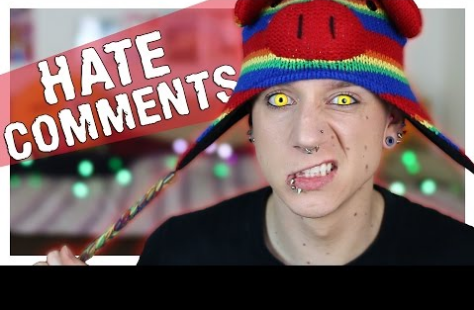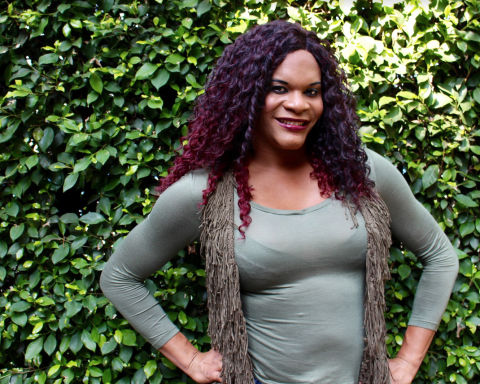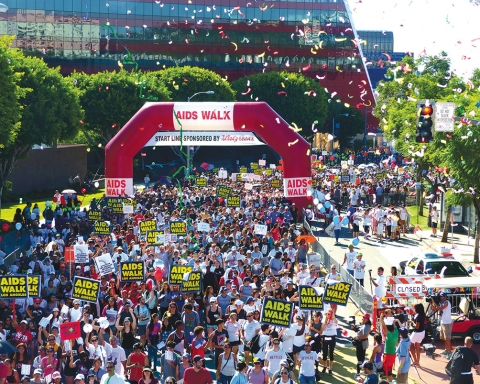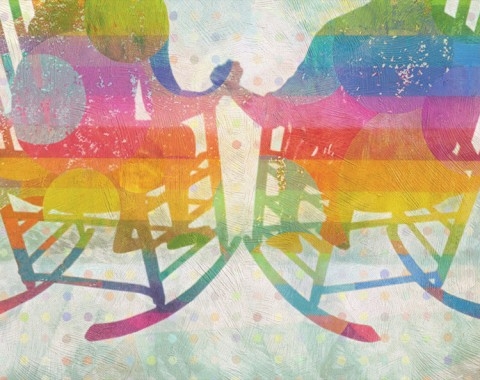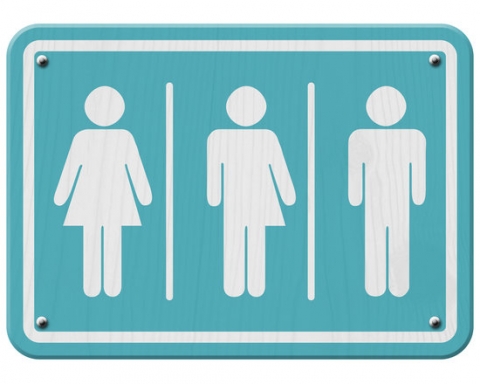If you pay attention to the news, it’s hard not to get swept up in the feeling that things are getting better for America’s LGBT citizens. However, after riding a wave of momentum in the courts this year, marriage equality hit a new roadblock in November, when the Sixth Circuit Court upheld bans in Ohio, Kentucky, Michigan and Tennessee. The decision is likely to force a ruling from the Supreme Court, a body that’s up until now been "leading from behind" on this issue. It’s also a reflection of the broader inequalities that still exist for LGBT people in today’s America, where activists note that marriage is only part of the picture.
"The ruling was a significant setback," says Advocate news director Sunnivie Brydum. "But this isn’t just about marriage equality. When you paint the entire community as this monolith, you end up reducing it to a caricature that doesn’t reflected the lived reality or the diversity of issues that face a community."
So where do LGBT people have it worst? According to Michaelangelo Signorile, the editor-at-large for the Huffington Post’s Gay Voices section, the worst states are clustered in the Midwest and the Bible Belt South. And there’s a reason for that. "Where we see one kind of oppression, we also see another," Signorile says. "We see in the South historic racism that’s more entrenched – not that there’s not racism everywhere else. You can’t separate these issues out."
Here is a researched list of the worst states for LGBT Americans. Some of the states on this list will be no-brainers; others might surprise you.
- Mississippi
According to electoral wunderkind Nate Silver, Mississippi will likely be the last state in the country to pass marriage equality on its own. As just 34 percent of the state’s population believes in the freedom to marry, Silver estimates that the Mississippi electorate wouldn’t get around to it for another decade or so. In addition, a survey from the Guardian showed that the state has almost no protections for LGBT people, outright banning marriage and adoption rights for same-sex couples. (A Daily Beast survey gave the state a -1 score on gay rights.)
Mississippi is also home to Southaven, one of the few cities in the country to score a zero out of 100 on the Human Rights Campaign’s Municipal Equality Index. The index looks at such factors as employment non-discrimination, transgender inclusive health benefits, and anti-bullying efforts in schools. Hattiesburg and Gulfport don’t score much better, with a respective 6 and 10 rating on the index. The state as a whole averages a paltry 9.8.
For anyone following Mississippi politics, this shouldn’t be a huge surprise. This is the same state where a school orchestrated a fake decoy prom to keep a lesbian couple from attending and another banned a female student’s yearbook photo when she was pictured wearing a tuxedo. In April, Mississippi passed a "religious freedom" law that would allow businesses to deny service to LGBT couples; the bill was strikingly similar to the one Arizona governor Jan Brewer vetoed last year. When Arizona is ahead of you on LGBT issues, you know you’ve got a big problem.
If it’s any consolation to gay residents, the Magnolia state isn’t that great for anyone to live in. Mississippi has the highest obesity rate, the shortest life expectancy, and the poorest citizens, as well as the country’s fourth-worst public school system, ahead of Idaho, Nevada and South Dakota.
- Alabama
Along with Mississippi, Alabama is one of eight so-called "No Promo Homo" states, with laws that "expressly forbid teachers from discussing gay and transgender issues," according to GLSEN. Alabama’s laws go a bit further than most: The state’s sex education program mandates that "classes must emphasize, in a factual manner and from a public health perspective, that homosexuality is not a lifestyle acceptable to the general public and that homosexual conduct is a criminal offense under the laws of the state."
Alabama actually beats Mississippi in a few notable ways. The Heart of Dixie has five cities, including Birmingham and Mobile, that rank as among the worst for LGBT people, all scoring below a 10. (Those cities average a scary 5.6.) In Alabama, only 32 percent of citizens are in favor of marriage equality, two percentage points less than Mississippi (only Arkansas and Louisiana rank lower). It also has a higher rate of income inequality, a particular concern for LGBT citizens who already face a greater risk for poverty.
The home of the Crimson Tide is also continues to be one of the most racist states in the nation, per social media data mapping from Floating Sheep. The geographical research team searched tweets from Obama’s 2012 reelection to track where America’s racist tweets were coming from. Alabama ranked first in Twitter racism, with Mississippi close behind. This is especially bad news for Alabama’s queer people of color, as the state has the nation’s sixth highest rate of hate crimes, many of which are racially motivated.
- Texas
When it comes to being unfriendly to LGBT people, Texas’ cities have the rest of America beat by a country mile. Eight Longhorn towns rank among the worst for LGBT people, with a whopping four (Lubbock, Mesquite, McAllen and Irving) receiving a zero score from the Human Rights Campaign. Queer women have it even worse, as the state continually ranks among the worst places for women, with the most abysmal healthcare system in the country.
Texans can thank Republican governor Rick Perry for that. Even though one in four Texans was uninsured in 2012, Perry claimed, "Every Texan has health care in this state. From the standpoint of having access to health care, every Texan has that.” Then again, he’s hardly the best authority when it comes to matters of health, as Perry recently compared homosexuality to alcoholism: "I may have the genetic coding that I’m inclined to be an alcoholic, but I have the desire not to do that, and I look at the homosexual issue the same way."
While Perry’s state is one of the least accepting of same-sex marriage, his party currently backs conversion therapy for minors, a practice that California has outlawed. For years, the Texas GOP has been attempting to undermine Lawrence v. Texas, the landmark Supreme Court decision that legalized relations between same-sex partners. Republicans have fought to keep language in the state’s penal code making "deviate sexual intercourse with another individual of the same sex" a misdemeanor charge. As late as last year, 12 other states had not purged their anti-sodomy laws.
There’s some good news for LGB citizens: Houston mayor Annise Parker (an out lesbian) passed a non-discrimination ordinance in May, promising equal access to employment, housing and healthcare. However, this was after Houston threw transgender people under the bus. Supporters dropped a provision from the bill that would allow transgender residents to use the public restroom that corresponds with their gender identity.
4 Louisiana
New Orleans is a highlight of gay culture in the south, with the city’s six-day Southern Decadence festival among the best pride celebrations in the world. Outside of NOLA, the picture is less rosy: Only 31 percent of Louisianans support the freedom to marry, the lowest rate in the country. It also ranks near the bottom in terms of household income and wage equality. This particularly matters for LGBT workers, as Louisiana is one of the 29 states where you can still be fired on the basis of sexual orientation. If you’re transgender, that figure goes up to 34 states.
Like Texas, Louisiana continues to enforce its unconstitutional sodomy ban, voting in April (by a wide 66-to-27 majority) to keep its anti-gay legislation. Even worse, they’re still enforcing it. Last year, the Advocate magazine reported that East Baton Rouge sheriff Sid J. Gautreaux has been orchestrating a "series of stings, in which an undercover policeman woos an unsuspecting gay man back to his apartment for sex and then makes an arrest." Gautreaux has arrested a dozen men since the operation began in 2011.
If you’re looking for more than a hookup in Louisiana, you’re still out of luck. In September, Louisiana became the first state to uphold its marriage ban at the federal court level. U.S. District Judge Martin Feldman struck down appeals, arguing that it was in the state’s best interest to "[link] children to an intact family formed by their biological parents." If you’re a gay person living in Ohio, Michigan, Kentucky or Tennessee, make sure to thank Louisiana’s courts for helping set a precedent.
5 Michigan
States like Tennessee and North Dakota present strong cases for inclusion as the last spot on this list. Tennessee is one of the eight "Don’t Say Gay" states, as well as ranking high in income inequality and poverty and low in public support for same-sex marriage. Gay Tennesseans are also less likely to know someone like them, as the state has the fourth-smallest percentage of LGBT citizens. It’s got nothing on North Dakota, where only 1.7 percent of the population identifies as LGBT, the lowest in the nation.
But we’re going with Michigan. While having more gays than those others, the state has a disproportionately high hate crime rate, with one survey ranking Michigan as high as second in the nation. These incidents largely target transgender women of color. In 2013, Detroit resident Coko Williams was fatally shot after her throat had been slashed. The previous year, police found the mutilated torso of 19-year-old Michelle Hillard; Michigan Live reports another woman was "burned so badly she couldn’t be identified for 11 days." An attack on a lesbian couple in April further highlighted the inadequacy of the state’s laws in prosecuting hate crimes.
This wave of anti-LGBT violence is part of the reason why Detroit was named the most dangerous city in the nation for gay travelers, and the survey also cited the metro area’s dwindling number of gay bars and high poverty rate. Dave Garca, the executive director of Affirmations LGBT center, told CBS that the state’s legislature isn’t helping matters. "It is still legal to fire people in Michigan for being gay, we can not marry, cannot adopt, and the governor signed away domestic partner benefits for LGBT public employees," Garcia said. He argues it has "created an anti-gay environment across the entire state."
Garcia has a point: The Guardian‘s 2012 survey showed that Michigan has almost no protections for LGBT people at any level, putting it on par with Mississippi. Whereas fellow Midwestern states Ohio and Kentucky at least allow LGBT people limited adoption rights, Michigan law even goes so far as to ban surrogacy. A recently introduced bill hopes to change the tide of Michigan’s LGBT politics by championing employment non-discrimination – but only on the grounds of sexual orientation, leaving transgender Michiganders out in the cold. Michigan might be America’s mitten, but it’s beginning to look a lot like Texas.


